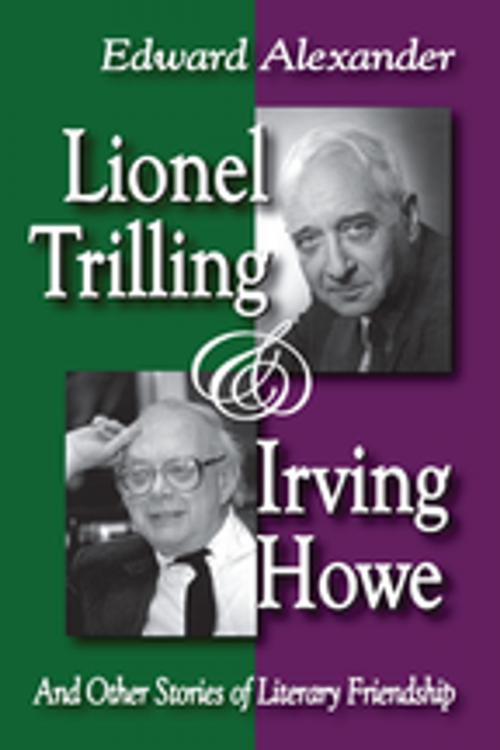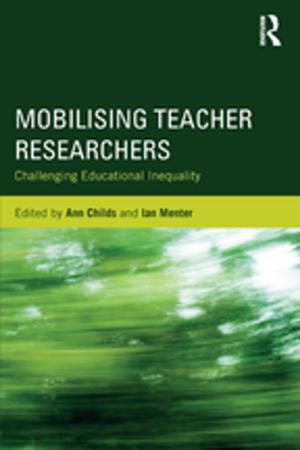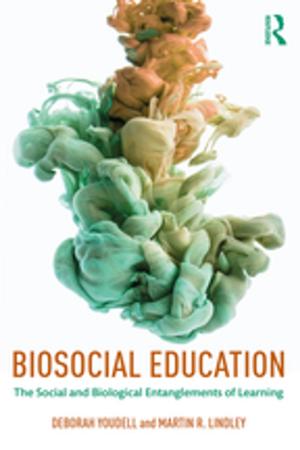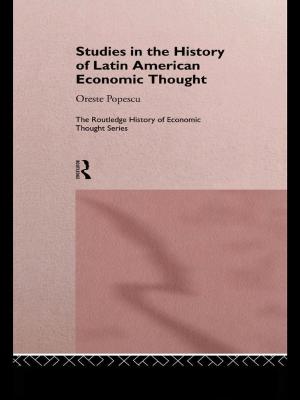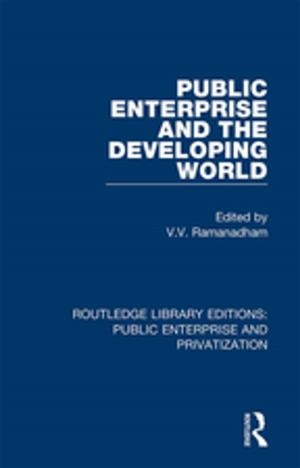Lionel Trilling and Irving Howe
And Other Stories of Literary Friendship
Biography & Memoir, Literary, Nonfiction, Religion & Spirituality, Philosophy| Author: | Edward Alexander | ISBN: | 9781351508629 |
| Publisher: | Taylor and Francis | Publication: | September 8, 2017 |
| Imprint: | Routledge | Language: | English |
| Author: | Edward Alexander |
| ISBN: | 9781351508629 |
| Publisher: | Taylor and Francis |
| Publication: | September 8, 2017 |
| Imprint: | Routledge |
| Language: | English |
This pioneering effort links history and personality, by pairing intellectual friends and foes, most notably Lionel Trilling and Irving Howe, but also Thomas Carlyle and John Stuart Mill, T.E. Lawrence and Bertrand Russell, and lesser known figures. The periods range from the early 1830s, when Carlyle and Mill discovered each other, to 1975, when Lionel Thrilling died and the relationship with Howe ended. The essay that gives this volume its title is also the most ambitious. Alexander examines Trilling and Howe in relation to one another, as well as their comparative reactions to the Holocaust. He explores their participation in the fierce disputes of the fifties over the relationship between literature and society, and their perspectives on the turmoil of the American sixties. The chapter on the friendships (and ex-friendships) of Carlyle and Mill, Lawrence and Russell, views their stories against the background of the modern conflict between reason and feeling, positivism and imagination. But Alexander avoids viewing each pair of friends as counterparts. Though relationships may have begun in adversity, they sometimes developed into friendships. As a young woman, George Eliot dismissed Jews as candidates for 'extermination', but her friendship with the Talmudic scholar Emanuel Deutsch changed her into one of the major Judeophiles of the Victorian period. And the quartet of Thomas Carlyle, J. S. Mill, D. H. Lawrence and Bertrand Russell shows how quickly-formed literary friendships, especially those based on the hunger for disciples, sometimes dissolve into ex-friendships. This volume reveals new perspectives on leading literary figures and their relationships, and shows how personal friendship influences art.
This pioneering effort links history and personality, by pairing intellectual friends and foes, most notably Lionel Trilling and Irving Howe, but also Thomas Carlyle and John Stuart Mill, T.E. Lawrence and Bertrand Russell, and lesser known figures. The periods range from the early 1830s, when Carlyle and Mill discovered each other, to 1975, when Lionel Thrilling died and the relationship with Howe ended. The essay that gives this volume its title is also the most ambitious. Alexander examines Trilling and Howe in relation to one another, as well as their comparative reactions to the Holocaust. He explores their participation in the fierce disputes of the fifties over the relationship between literature and society, and their perspectives on the turmoil of the American sixties. The chapter on the friendships (and ex-friendships) of Carlyle and Mill, Lawrence and Russell, views their stories against the background of the modern conflict between reason and feeling, positivism and imagination. But Alexander avoids viewing each pair of friends as counterparts. Though relationships may have begun in adversity, they sometimes developed into friendships. As a young woman, George Eliot dismissed Jews as candidates for 'extermination', but her friendship with the Talmudic scholar Emanuel Deutsch changed her into one of the major Judeophiles of the Victorian period. And the quartet of Thomas Carlyle, J. S. Mill, D. H. Lawrence and Bertrand Russell shows how quickly-formed literary friendships, especially those based on the hunger for disciples, sometimes dissolve into ex-friendships. This volume reveals new perspectives on leading literary figures and their relationships, and shows how personal friendship influences art.
